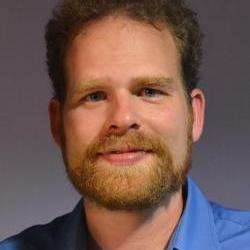What is it about percussion concerts? They always seem to have a different feeling to other shows, a palpable sense of energy, curiosity and excitement. Is it seeing all the gear crammed into the venue before the show starts? Is it that we never really know exactly what types of sounds and instruments we may hear? Is it just that there’s a certain visceral energy in the air when you know people are going to be hitting and banging on things all night? Whatever it is, it was certainly present at the Macbeth in Hoxton, where Nonclassical’s “Pioneers of Percussion Festival” kicked off on Wednesday night.
The theme of this show was “New York / London: What’s Happening Now”. A collaboration with New York’s hip Indie-classical record label/presenting organization New Amsterdam, it featured a mix of New York and London-based composers, as well as the finalists in their composition competition. It was an enjoyable program, featuring a variety of approaches to percussion that nonetheless coalesced into a coherent aesthetic stance.
The show opened with works by three New York-based composers: David Lang, Judd Greenstein and David T. Little. Lang’s Anvil Chorus (1992), which opened the show, is a classic example of the brash, muscular music that characterizes much of his music from that time. His more recent music (like his gorgeous little match girl passion, which won the 2008 Pulitzer Prize) is generally gentler, more rounded, and larger in scope, so it was refreshing to hear the extremely focused intensity of this earlier piece. Performed with grooving precision by James Larter, it was a perfect opener for the evening.
Next came Greenstein’s We Shall Be Turned (2006), another work for solo percussionist. Greenstein is one of the directors of New Amsterdam and also New York’s Ecstatic Music Festival, a tireless supporter and promoter of New York’s “indie-classical” scene. Much of his music is visceral, in-your-face, and unabashedly influenced by popular music, but We Shall Be Turned was a different animal. Making extensive use of the ringing sonorities of crotales, vibraphone, and suspended cymbals, it was atmospheric and contemplative. Rhythmic grooves did emerge, but gently – it was music to perform a ritual by, rather than dance to.
Closing this first set was David T. Little’s Speak Softly (2004), performed by The Fellowship (of the Ring). Little is also affiliated with New Amsterdam and is especially known for his ensemble Newspeak, dedicated to performing and commissioning new music with political themes. Speak Softly is for a quartet of four players wielding long sticks of different lengths (and pitches). They hit the sticks on the ground, against each other, and with beaters, creating a surprisingly rich palette of timbres and intricate cross-rhythms. It was a fun, groovy, primal piece. The audience loved it.
The next set was English composer Steve Martland’s Starry Night for marimba and string quartet. One of the few exemplars of minimalist music in the UK, Martland (who sadly past away unexpectedly last May, in his early fifties) was a fitting composer to pair with the New Yorkers. Starry Night is an exciting, rhythmically propulsive, perpetual motion piece. Catherine Ring flew around the marimba with her precise, incisive mallet strokes. The Ryedale Players String Quartet played with good energy, but could have been a bit tighter at times. The piece itself was generally enjoyable, though it seemed a bit too stretched out for its material, at times becoming monotonous.
For the next set, Tom Lee performed the three finalists selected in Nonclassical’s composition competition for a new work for solo percussionist. All three of the works were enjoyable and well-crafted. My favorite was Michael Brailey’s loud and confident I am a Nice Shark, but the winner was declared to be Ed Scolding’s more subtle and polished Drawing. Alex Groves’ Mantra was also effective, if a bit cryptic, as it mixed a variety of instruments with spoken text as it disassembled and deconstructed the sentence “Ain’t nowhere else it can go, right?”
The UK première of David Maric’s Run Chime and Tansy Davies’ Dark Ground filled out the rest of the concert. Both were excellent compositions, full of vitality and rhythmic and textural invention, and expertly performed.
The Macbeth is a little bit of an odd venue, with a large bar jutting out that forces the audience into a fairly small space. It could barely contain all the percussion equipment required for the show, which resulted in very long set changes between pieces; it was nearing midnight by the time the show finally ended. On the positive side, the extended set changes provided extra opportunity for Nonclassical’s DJs Sam Mackay and Nwando to work their magic. A friend I saw at the show called the DJs the “unsung heroes” of Nonclassical, and indeed they are. It’s they, more than anyone, who set the unique tone for these shows, providing the intriguing sonic frame that surrounds the live works.


